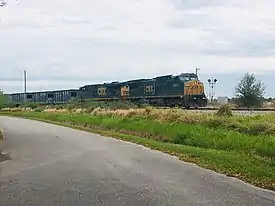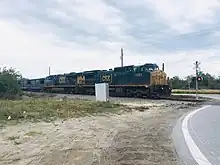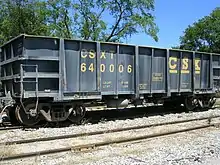Brewster Subdivision | ||||||||||||||||||||||||||||||||||||||||||||||||||||||||||||||||||||||||||||||||||||||||||||||||||||||||||||||||||||||||||||||
|---|---|---|---|---|---|---|---|---|---|---|---|---|---|---|---|---|---|---|---|---|---|---|---|---|---|---|---|---|---|---|---|---|---|---|---|---|---|---|---|---|---|---|---|---|---|---|---|---|---|---|---|---|---|---|---|---|---|---|---|---|---|---|---|---|---|---|---|---|---|---|---|---|---|---|---|---|---|---|---|---|---|---|---|---|---|---|---|---|---|---|---|---|---|---|---|---|---|---|---|---|---|---|---|---|---|---|---|---|---|---|---|---|---|---|---|---|---|---|---|---|---|---|---|---|---|---|
| ||||||||||||||||||||||||||||||||||||||||||||||||||||||||||||||||||||||||||||||||||||||||||||||||||||||||||||||||||||||||||||||
| Note: Not to scale | ||||||||||||||||||||||||||||||||||||||||||||||||||||||||||||||||||||||||||||||||||||||||||||||||||||||||||||||||||||||||||||||
The Brewster Subdivision is a railroad line owned by CSX Transportation in Florida. The line runs from the Valrico Subdivision at Edison Junction south through Bradley Junction to Arcadia for a total of 47.2 miles. It junctions with the Achan Subdivision and the Agricola Spur at Bradley Junction, and connects to the Seminole Gulf Railway in Arcadia.[1]
Route description
The Brewster Subdivision begins at Edison Junction near the community of Keysville. It starts as a wye that branches off the Valrico Subdivision. From here, it proceeds southeast to Bradley Junction, where it turns south on to the former Charlotte Harbor and Northern Railway. From Bradley Junction, the line continues south to Agrock, Fort Green Springs, and Ona before coming to a point just north of Arcadia where it connects with the Seminole Gulf Railway, a shortline that operates the continuing track south to Punta Gorda and Fort Myers.[1]
Operation

The Brewster Subdivision is CSX's second busiest line through the Bone Valley after the Valrico Subdivision. The line is dispatched through Track warrant control.[1]
The line serves three phosphate facilities operated by The Mosaic Company. Mosaic's New Wales processing plant is located near the north end of the line between Edison and Bradley Junction and is considered by Mosaic to be the world's largest phosphate processing facility. Four Corners Mine is located a short distance behind Agrock yard south of Bradley Junction. Agrock yard is used by Mosaic as a staging area for Four Corners Mine and operates their own locomotives and equipment from the mine to the yard. The southernmost phosphate mine on the line is Mosaic's South Pasture Mine in Fort Green Springs which was previously operated by CF Industries before it was bought by Mosaic. South Pasture Mine is currently not operating and has been idle since 2018. Though Mosaic plans to reactivate it at some point in the future.[2] When active, South Pasture is the southernmost point of CSX's Bone Valley operations.[3][4]

The only traffic on the Brewster Subdivision that runs south of South Pasture is twice-weekly mixed freight from Winston Yard to Arcadia for interchange with Seminole Gulf Railway. This traffic is the only non-phosphate related rail traffic on the Brewster Subdivision.
History
Edison to Agricola
The northern segment of the Brewster Subdivision from present-day Edison to Bradley Junction and east to Agricola was built as a branch line by the Seaboard Air Line Railroad in 1910. It was built to further extend the Seaboard Air Line's network into the Bone Valley's growing phosphate industry.[5]
South of Bradley Junction
The Brewster Subdivision south of Bradley Junction was built by the Charlotte Harbor and Northern Railway (CH&N). The Charlotte Harbor and Northern Railway was built in 1911, which intersected the Seaboard's branch at Bradley Junction. The Charlotte Harbor and Northern Railway historically extended as far south as Boca Grande, which was once the location of a major phosphate shipping port.[5] The Seaboard Air Line bought the Charlotte Harbor and Northern Railway in 1926. By the end of 1926, track from Edison to Bradley Junction and the former CH&N from there south was designated as the company's Fort Myers Subdivision since it provided access to the company's line to Fort Myers.[6] Edison Junction was given its name because of this, since inventor Thomas Edison had a seasonal residence in Fort Myers.[7]
Later years

The line was renamed the Boca Grande Subdivision in 1957 after the Seaboard Air Line abandoned its line to Fort Myers.[8]
The line once had a spur track to the former Payne Creek Mine east of Agrock Yard.[9] Payne Creek Mine has since been redeveloped by Mosaic into the Streamsong Resort and golf course.[10]
In 1967, the Seaboard Air Line and the Atlantic Coast Line merged to form the Seaboard Coast Line Railroad. In 1980, the Seaboard Coast Line's parent company merged with the Chessie System, creating the CSX Corporation. The CSX Corporation initially operated the Chessie and Seaboard Systems separately until 1986, when they were merged into CSX Transportation.

Track south of Arcadia to Boca Grande was abandoned in 1981 after the closure of Port Boca Grande. The remaining line was subsequently renamed the Brewster Subdivision, which is named for the defunct ghost town of Brewster that was located just south of Bradley Junction. The town existed from 1910 to 1962 and played a role in the area's phosphate industry. Remnants of the town include a smokestack and a few abandoned buildings.[11]
References
- 1 2 3 CSX Jacksonville Division Timetable
- ↑ "Overview". The Mosaic Company. Retrieved 27 April 2020.
- ↑ Harmon, Danny. "Buried Locomotive in the Bone Valley". YouTube. Retrieved 15 November 2018.
- ↑ "Florida's Bone Valley Part 2: The Brewster Sub". Train Orders. Retrieved 15 November 2018.
- 1 2 Turner, Gregg (2003). A Short History of Florida Railroads. Arcadia Publishing. ISBN 978-0-7385-2421-4.
- ↑ Seaboard Air Line Railway South Florida Division Timetable (1940)
- ↑ Lithia's former Edison SAL depot in 1969 (Flickr)
- ↑ Seaboard Coast Line Railroad Jacksonville Division and Tampa Division Timetable (1977)
- ↑ Milligan, Del. "Mosaic Company Opens $80 Million Resort At Site of Former Phosphate Mine". The Ledger. Retrieved 8 June 2021.
- ↑ "The Mosaic Company". Streamsong Resort. Retrieved 27 April 2020.
- ↑ "Brewster". Ghost Towns. Retrieved 15 November 2018.